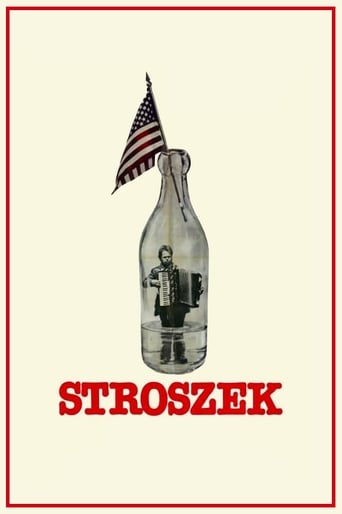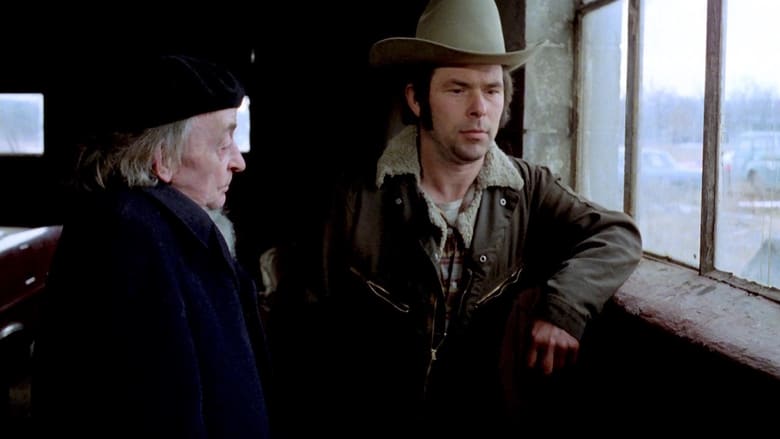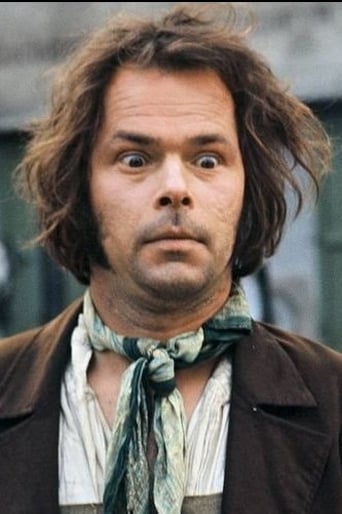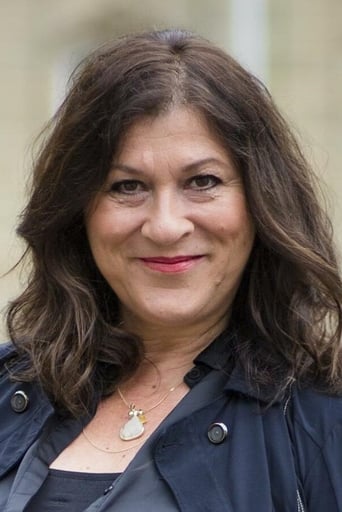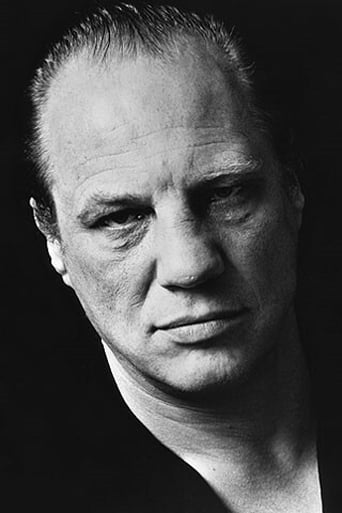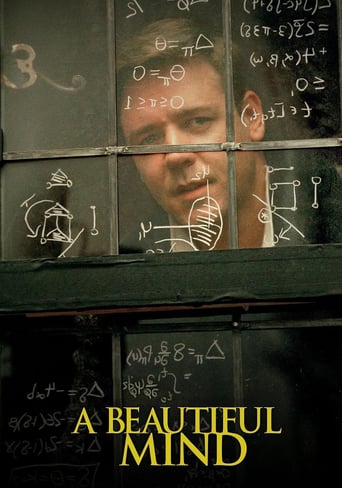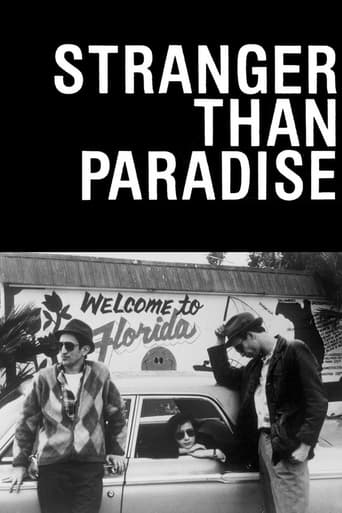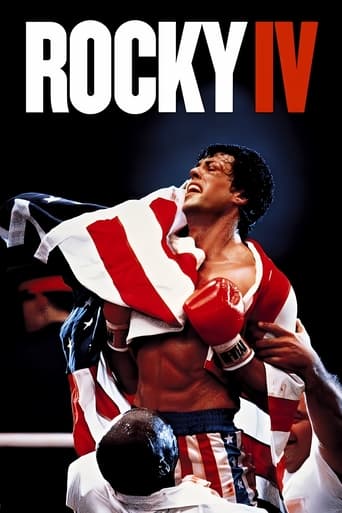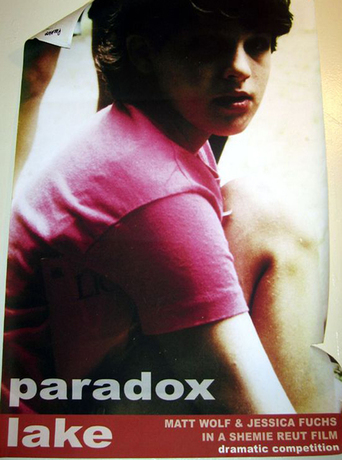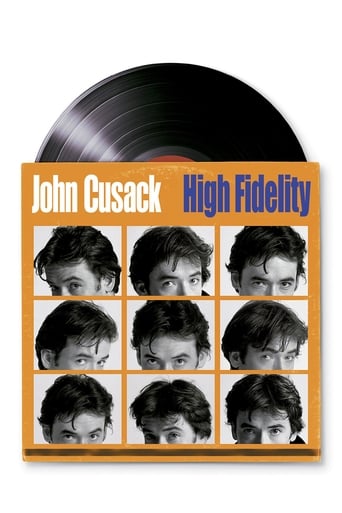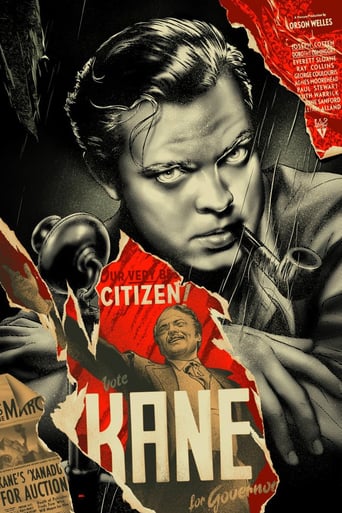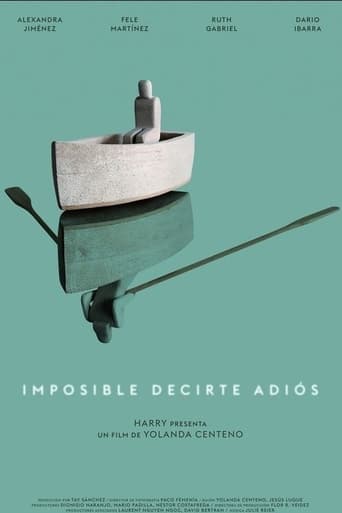Stroszek (1977)
Bruno Stroszek is released from prison and warned to stop drinking. He has few skills and fewer expectations: with a glockenspiel and an accordion, he ekes out a living as a street musician. He befriends Eva, a prostitute down on her luck and they join his neighbor, Scheitz, an elderly eccentric, when he leaves Germany to live in Wisconsin.
Watch Trailer
Cast


Similar titles
Reviews
That was an excellent one.
I'll tell you why so serious
A movie that not only functions as a solid scarefest but a razor-sharp satire.
This is one of the best movies I’ve seen in a very long time. You have to go and see this on the big screen.
"Stroszek" is a German movie from almost 40 years ago and the second collaboration between Werner Herzog and Bruno S. Herzog initially planned to cast him as Woyzeck, but chose Kinski for the role. To make it up to Bruno, Herzog wrote this film here and it turned into one of his biggest successes with Bruno giving the lead character his uniquely memorable touch. He is a man who gets released out of jail and needs to stay away from the booze in order to lead a normal life again. After some violent trouble with a pair of pimps, Bruno, his girl (played by Eva Mattes, who got a German Film Award nomination for her turn) and a friend move to the United States of America. And for the rest of the film we see how life for Bruno and his guys is over there. Sadly, the American Dream is collapsing pretty quickly.The film runs for over 105 minutes and I personally found the parts in Germany early on more interesting really. But that is not saying that the second half of the film wasn't good. I thought it was a very decent watch from start to finish and I find it a pity Herzog hasn't made more films with Bruno or that Bruno has not starred in other movies in the 1970s and 1980s. I definitely liked watching him. In here as well as in Kaspar Hauser from 3 years earlier. People may say that there is not really that much happening in "Stroszek", but first of all I don't think this is a valid criticism per se and secondly actually there is a lot happening. Life is happening. We see a man going for his dream, but sadly things don't go the way he hoped in the long run. I recommend "Stroszek"- This film is more proof of how good Herzog was in the 1960s. And for authentic and honest Bruno S.'s acting was at the same time. Go check it out.
"Stroszek" may be Werner Herzog's greatest masterpiece. it's certainly his most humane picture and in casting non-actor Bruno S in the title role he gets so close to the feeling of raw truth we may as well be watching a picture of Bruno S's life, (something he also achieved in "The Enigma of Kaspar Hauser" where Bruno S's performance as Hauser totally transcended acting to become the character). Here he simply becomes Stroszek just as Eva Mattes becomes Eva and Clemens Scheitz becomes Scheitz. Herzog transports them from Germany to America where Stroszek gets a dead-end job in the garage of Scheitz's nephew and Eva becomes a waitress, (in Berlin she turned tricks to earn the money for their trip and doesn't appear too anxious to give up that line of work).Nothing conventional happens but seldom on film has the mundane existence of ordinary people seemed so fascinating, (and Herzog's use of non-actors throughout only enhances this feeling of reality). Of course, these characters are misfits; they don't fit in and they lead lives of mostly unrelieved misery and this has lead to accusations that Herzog is nothing more than a misanthrope and that, at best, he patronizes his characters. His continual casting of actors like Bruno S and Klaus Kinski has lead to a kind of alienation though, in Herzog's case, madness, like beauty may be only in the eye of the beholder with Stroszek no more to be pitied than Cool Hand Luke. If "Stroszek" is a tragedy, it is a comic one and immediately identifiable as the work of its director: you don't mistake a Herzog movie set in America as a Bob Rafelson movie. And yes, before you ask, it's visually superb and with a great soundtrack, too. Essential.
One of the idiosyncrasies of German writer/producer/director Werner Herzog is to use strange characters in almost any movies he makes. He's most famous for his love/hate relationship with madman Klaus Kinski of course, but he doesn't shun to use difficult actors and lots of amateurs in general in order to go for an entirely new angle. Such actors lend his films a very grounded look and feel, at the same time such films feature unsettling or even absurd undertones which eventually tend to break out in full. All that quite a distance away from anything you might associate with Hollywood. "Stroszek" is the movie of one such character, written just for him: Bruno S., playing the part of... Bruno.Herzog used Bruno S. already in "The Enigma of Kaspar Hauser" to play the role of that famous youth who appeared in Nurnberg in 1828 and was kept the whole life in a dungeon, barely able to speak or walk. In many ways the character reflects the actor Bruno S.: An unwanted child of a prostitute, beaten severely at early age, having spent 23 years in mental institutions. Herzog also admits that he was extremely difficult to work with, but Bruno represented exactly what Herzog was looking for to get the perfect "Kaspar Hauser". With "Stroszek" Herzog made a film tailored even more around Bruno S. Teamed up with another of the director's favorite amateur actors, Clemens Scheitz, Bruno S. plays himself and his naive struggle with the world around him. Stroszek escapes from Germany to America, but things aren't any better over there as he eventually finds out. The tides of life leave him stranded all alone like flotsam, mirroring a shot of Kaspar Hauser on the market place of Nurnberg. As an actor, this is Bruno S. finest hour and one of Herzog's most remarkable entries.
"A person needs a little madness, or else they never dare cut the rope and be free." – Nikos Kazantzakis "Amerika ist wunderbar!" - RammsteinMany of the films which comprise "New German Cinema", a period in German cinema which lasted from the late 1960s to the mid 1980s, explored and attempted to come to terms with the cultural colonisation foisted upon Western Germany by America in the aftermath of WW2.Wim Wenders, Margarethe Trotta, Rainer Fassbiner and Werner Herzog were the big names in this movement, with films like "The American Friend", "Kings of the Road", "Storszek" and "Fear Eats the Soul". But while Herzog's "Storszek" may have been thematically typical of the movement, it's a bit of an anomaly in Herzog's own filmography, whose films, at least at the time, tended to be set in the past and were often structured as allegories or medieval fables."Storszek" opens with a mentally unstable musician, Bruno Stroszek, being released from prison. This character is modelled on the life of Bruno Schleinstein, the actor who actually plays Stroszek in the film. Typical of Herzog's work, "Storszek" thus effortlessly blends fiction and documentary, Bruno, who always seems uncomfortable in front of Herzog's camera, "acting as himself" in a fictional story based loosely on his own life.Like most of Herzog's films, the tale is told via several symbolic episodes. First act: a wet and oppressive Germany populated by violent pimps and prostitutes. Symbols like a shrinking boat and a bird which is confiscated are then dished out, after which Bruno "rescues" a prostitute and travels to America in the hope of making a better life for himself.Vast and seemingly unrestrictive, America is initially portrayed as a place of possibility and freedom. Gradually, though, Herzog begins to populate this world with his usual assortment of freaks and grotesque characters. More symbols and symbolic subplots are then revealed: the story of a local murderer and body snatcher, the fact that Bruno's new hometown was the hometown of Ed Gein, warring farmers who fight over a thin strip of land, obsessions with metal detectors, a crazy old man's insistence that people are magnetic and that the dead emit magnetic fields, dangerous walks on frozen ponds, salty pretzels, mobile homes, a ski lift etc etc.End result: by the film's final act, "Storszek's" faux-documentarian edge completely gives way to a kind of overt surrealism. And so Herzog has Bruno lose his home, lose his girlfriend (who returns to prostitution and leaves him for an obese trucker), and mount an incompetent robbery, all for 32 dollars and a Thanksgiving turkey. Chased by the police, Bruno then flees to a depressingly tacky town whose chief income is a large amusement park operated by Native Indians and awash with machines, neon signs, glitzy diversions, kitschy plastic facades and an assortment of fun-house fakery.Seeking escape, Bruno hops on board a ski lift. He thinks it'll take him up into the mountains, to some heavenly getaway, but of course the ski lift is stuck in a loop and can take him nowhere except right back where he started from. Realizing that the American dream is the German reality, Bruno shoots himself, committing suicide off screen.The film's final shot is of a solitary chicken, trapped in a fun-house, dancing (automatically, seemingly without thought) in a cage and making a fool of itself for bird-seed. This, of course, is Bruno's own trap: the Myth of Sisyphus in poultry form, life reduced to a circus act too grotesque to contemplate. Joy Division lead singer Ian Curtis would hang himself in his kitchen moments after witnessing this very sequence.Herzog's cinema is a cinema of madmen (Timothy Treadwell in "Grizzly Man", Klaus Kinski's numerous starring roles, the various mystics and deranged prophets peppered throughout Herzog's filmography etc). What's great is that you're never quite sure how nuts these guys are and how sympathetic Herzog wants you to be toward them. But while it's easy to dismiss Bruno as an endearingly simple man-child with a couple screws loose in the head (he is), Herzog's ultimate point is three fold. Yes, the amusement park may violently spit madmen out of its machinery, mad men like Bruno who either reject the illusion or are too damaged to cope. But those "chickens" whom the machinery doesn't reject are far more insane. "Normalcy" is irrational, and in Herzog's filmography it is often the mad who see this clearest. Or as Harlan Smith once said: "Fantastic insight into the true nature of Reality is isomorphic to insanity."8.5/10 – Fittingly, this film was made the same year as Lynch's "Eraserhead". Lynch would use a similar filmic language or meta-story decades later with "The Straight Story". The film is too ambivalent to be taken as a jab at America and late capitalism. Herzog is primarily an existentialist, and whatever fingers he points at the US he points at Germany as well.Worth two viewings.

